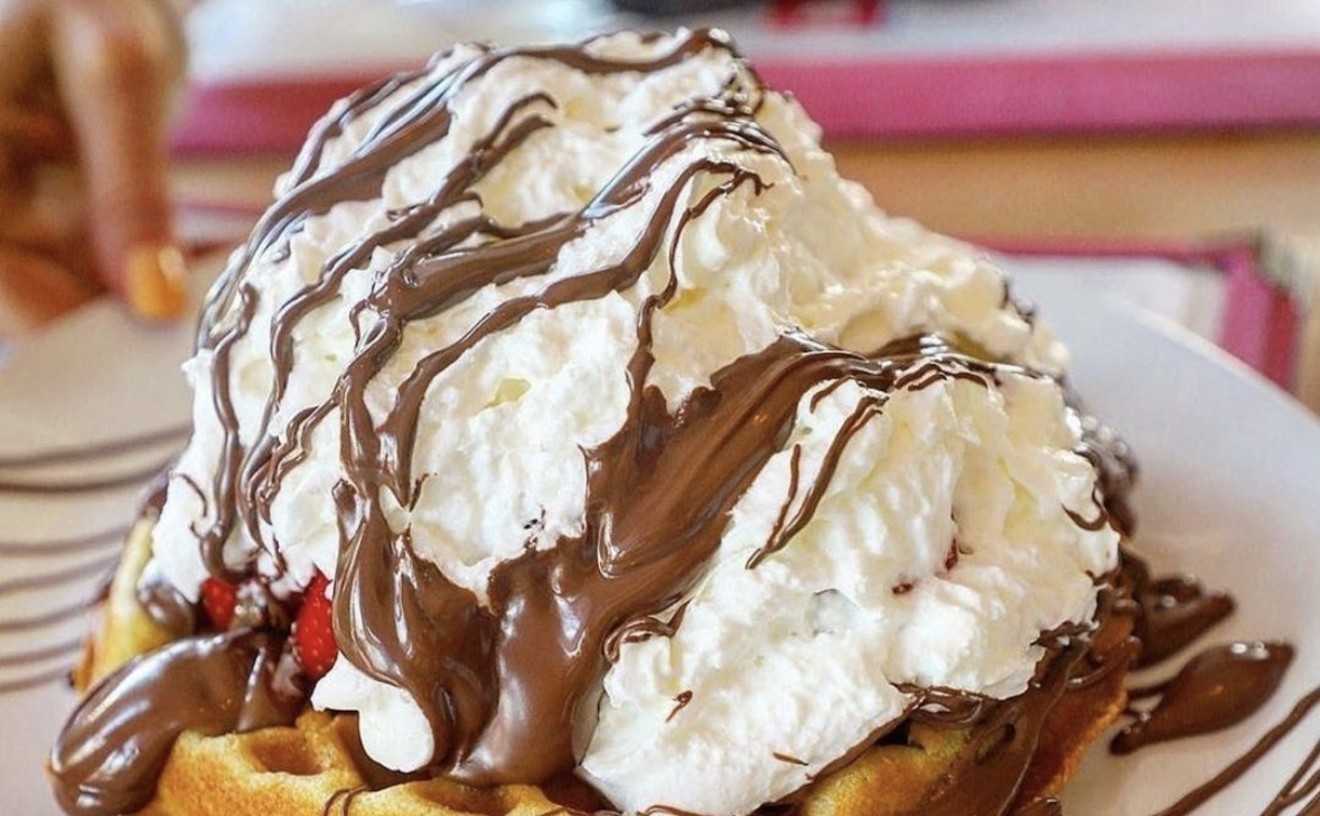For many years, the Miami brewing industry was a cordial community seemingly devoid of internal conflict, but all of that changed when Schnebly Redland's Winery — which includes Miami Brewing Company — sent a cease-and-desist letter alleging trademark infringement to M.I.A. Beer Company on February 12.
In the letter obtained by New Times, Schnebly demands that M.I.A. owner Eddie Leon stop using the trademark "MIA Brewing Company" (which was the brewery's name at the time) within 30 days from the date of the letter, as well as remove any reference to the name from all products and provide an accounting of all products with the name and an accounting of all profits received from them within 14 days.
If Leon didn't comply, the letter states, he'd be "liable for compensatory damages" and "ill-gotten gains," as well as court costs and attorneys' fees.
According to Leon, the document came just days before M.I.A.'s anniversary party and was a complete surprise. Both Leon and Peter Schnebly served on the board of the Miami Brewers Alliance, and Leon considered him a friend. Three years earlier, Leon says, Schnebly alluded to potential problems with the similarity of the names and both had a gentlemen's agreement, trusting they wouldn't interfere with each other's business.
"Quite honestly, it felt like a big stab in the back," Leon says. "I'm like, really? It was pretty shocking."
Leon immediately called Schnebly, who said the likeness of the names is too confusing for customers. Leon disagreed because "M.I.A." could mean any number of things, such as "missing in action" or Miami International Airport.
When contacted, Schnebly said he didn't want to comment for this story. Matthew Swyers, Schnebly's attorney, didn't immediately respond to New Times' calls or emails.
Swyers is an attorney who specializes in trademarks and runs the North Carolina-based firm the Trademark Company, which he launched in 2003. It provides the "highest level of trademark services at the most affordable rates in the industry," says the company's website. According to his LinkedIn profile, Swyers was a former trademark examining attorney at the U.S. Patent and Trademark Office (USPTO).
"I am a zealous advocate for small and medium-sized businesses' trademark rights," Swyers writes on his LinkedIn profile. "While at the USPTO, I routinely witnessed individuals and small to mid-sized businesses in need of legal assistance but without the ability to afford traditional law firm representation."
To avoid receiving a cease-and-desist letter or be accused of infringement, a company must conceive of its own trademark. The purpose for doing so is to avoid confusing the customer. If two companies in the same industry (the manufacturing of alcoholic beverages, for example) use similar trademarks, the one that claimed its first usually prevails.
Claiming infringement on geographically descriptive trademarks becomes a bit more problematic, says Ross Appel, a Hollywood-based attorney specializing in trademarks and intellectual property for Komlossy Law. He replied to Swyers' cease-and-desist letter on behalf of Leon, and although Appel didn't want to comment on the letter itself, he did have something to say about geographically descriptive trademarks.
According to Appel, a trademark with a geographic reference is difficult to protect if a customer knows it only as a source for goods and services, not as describing a particular location. In order for a company to claim exclusivity on this kind of trademark, a number of factors, Appel says, need to be considered, such as market size, sale, or whether it has been in use for a period of time — generally no fewer than five years. "If it expresses where the product is coming from," Appel says, "the amount of protection that you're going to get is so minimal."
Trademark infringement is an issue that's come up frequently in the craft beer world. See Magic Hat Brewing Company v. West Sixth Brewing.
Leon became somewhat of a trademark expert when he started M.I.A. Brewing — originally called Most Wanted Brewery. He changed the name after discovering that Kansas City-based High Plains Distillery makes a Most Wanted vodka that could've caused a potential conflict.
Leon altered his company's name from M.I.A. Brewing to M.I.A. Beer Company, although he says the letter has nothing to do with that change. It's not clear whether the case will proceed, and Leon hasn't heard anything since February.
"We want to have a little bit more of a distinction," Leon says. "I just want to make it clear that we are different."
[
{
"name": "Air - MediumRectangle - Inline Content - Mobile Display Size",
"component": "19274298",
"insertPoint": "2",
"requiredCountToDisplay": "2"
},{
"name": "Editor Picks",
"component": "17482312",
"insertPoint": "4",
"requiredCountToDisplay": "1"
},{
"name": "Inline Links",
"component": "18711090",
"insertPoint": "8th",
"startingPoint": 8,
"requiredCountToDisplay": "7",
"maxInsertions": 25
},{
"name": "Air - MediumRectangle - Combo - Inline Content",
"component": "17482310",
"insertPoint": "8th",
"startingPoint": 8,
"requiredCountToDisplay": "7",
"maxInsertions": 25
},{
"name": "Inline Links",
"component": "18711090",
"insertPoint": "8th",
"startingPoint": 12,
"requiredCountToDisplay": "11",
"maxInsertions": 25
},{
"name": "Air - Leaderboard Tower - Combo - Inline Content",
"component": "17482313",
"insertPoint": "8th",
"startingPoint": 12,
"requiredCountToDisplay": "11",
"maxInsertions": 25
}
]










